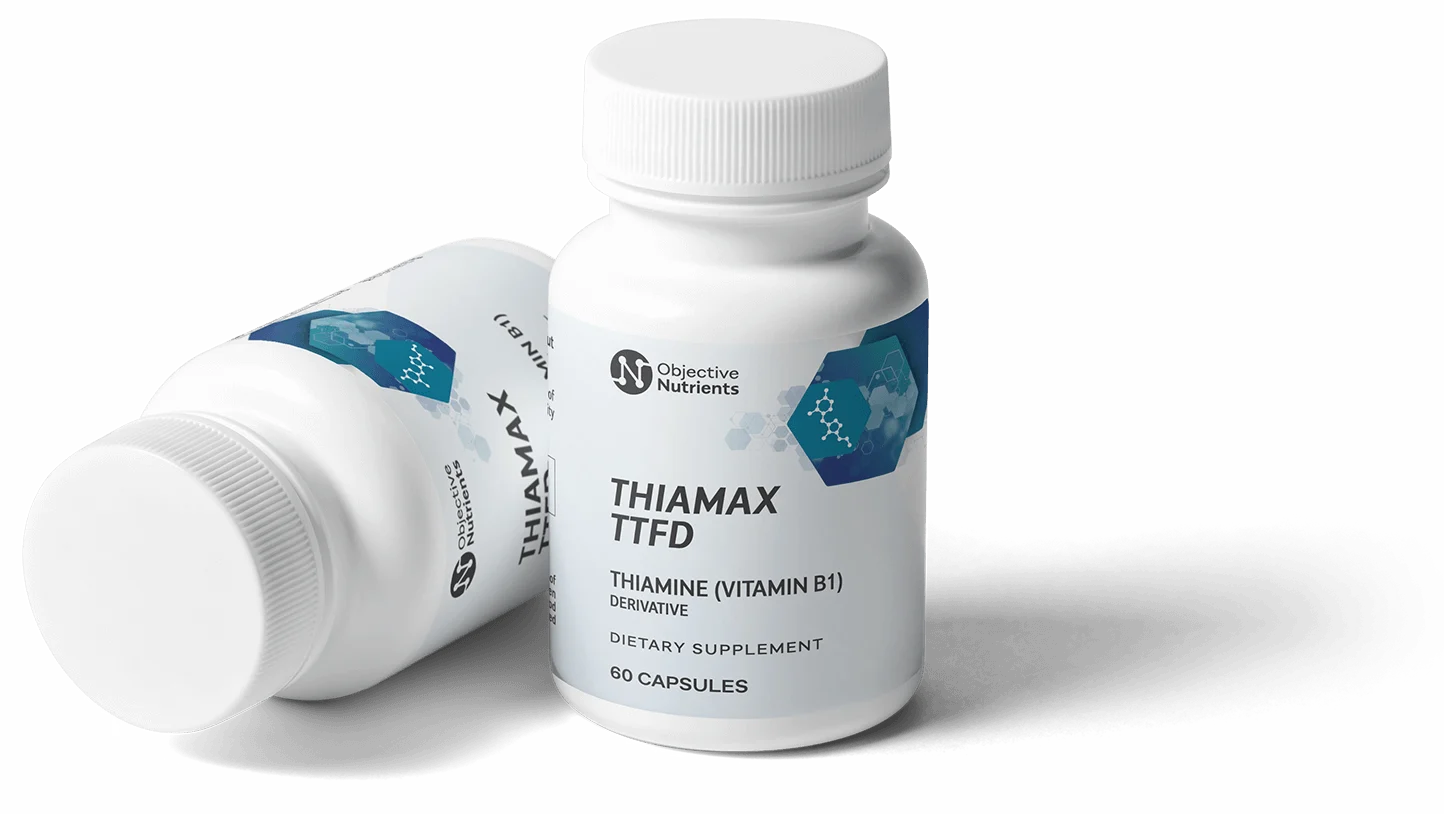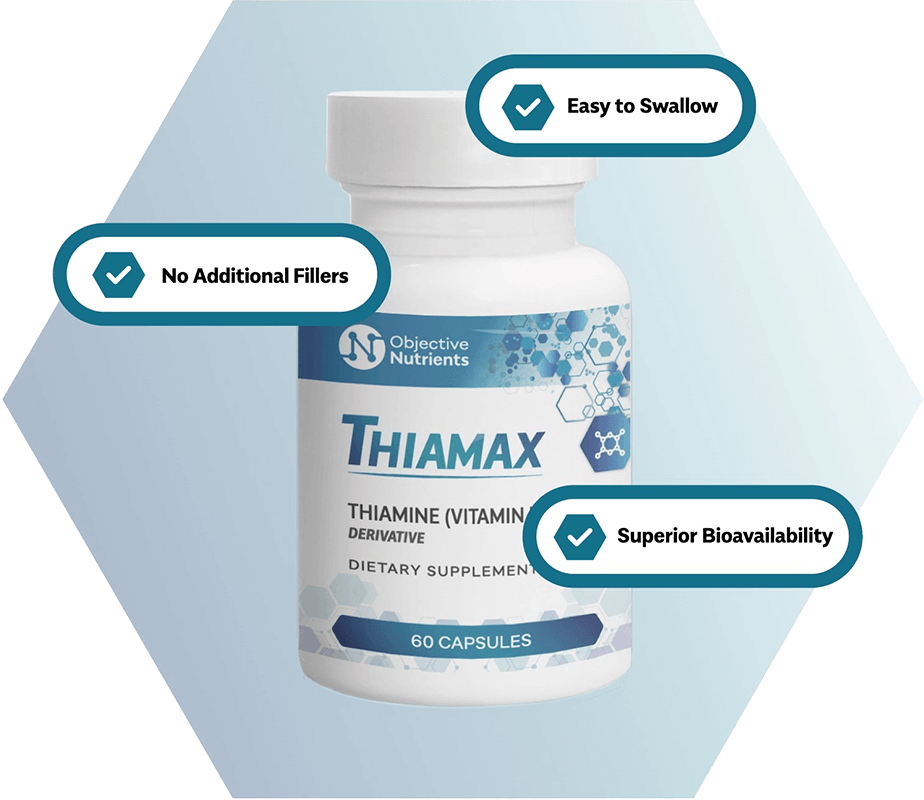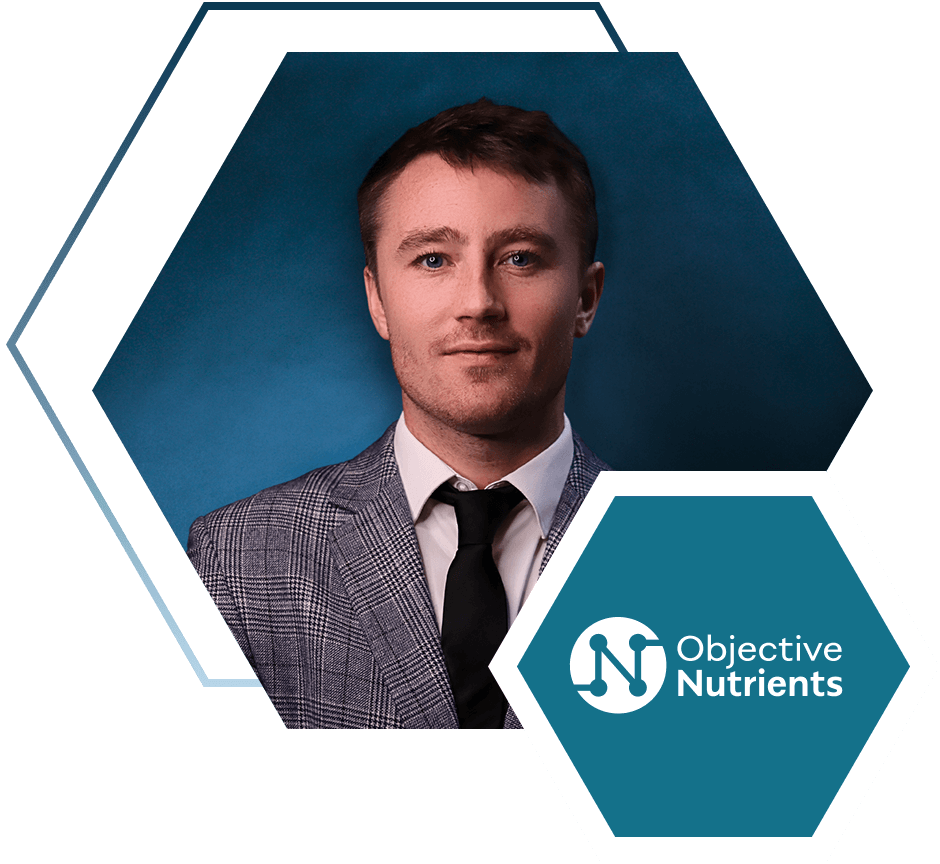(816)
Price range: $26.99 through $54.99

The only form of TTFD in the world without any artificial fillers or excipients
Trusted by 1000+ Practitioners

95% of our customers say they would recommend Objective Nutrients

Zero unnecessary fillers, bulking agents or additives
Each capsule delivers 100mg of TTFD
Absorption of TTFD is superior to ordinary thiamine salts
TTFD can deliver thiamine to the central nervous system
TTFD increases activated thiamine inside mitochondria
Elliot Overton is a nutritionist based in France, and is considered to be an expert in the clinical application of high-dose thiamine therapy.
He frequently lectures and speaks at educational events aimed at practitioners, helping to broaden the understanding and application of thiamine in clinical settings. He is co-founder and CEO of Objective Nutrients, a nutraceutical company specialising in excipient-free thiamine derivatives and related supplements.
